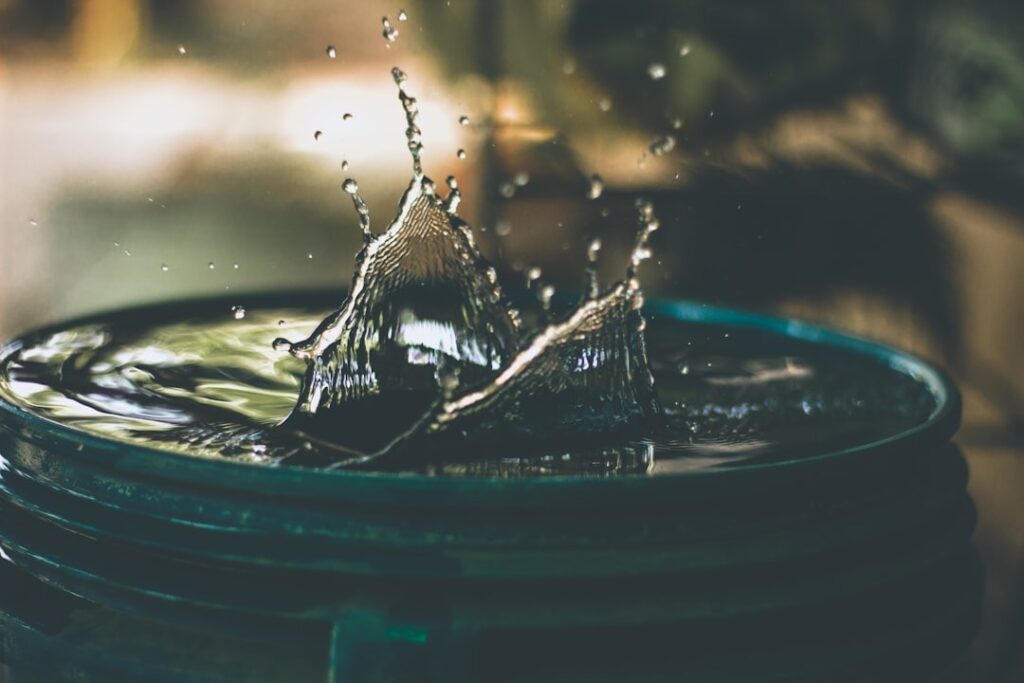
Gardening is a wonderful way to connect with nature, but it’s important to do so sustainably. Creating a sustainable garden benefits the environment tremendously. It also reduces waste, conserves water, and promotes biodiversity. In this guide, we’ll explore eco-friendly gardening tips to help you grow a thriving, sustainable garden.
1. Use Organic Seeds and Plants
First things first, start your garden with organic seeds and plants. Organic plants are grown without synthetic pesticides or fertilizers, making them safer for you, your family, and the environment. They are grown using eco-friendly farming practices that protect soil health and promote biodiversity.

Why Organic Seeds
Organic seeds are grown using sustainable farming practices that protect soil health and promote biodiversity.
Recommendation
Choose seeds from certified organic sources like Seed Savers Exchange or Botanical Interests to ensure you’re starting your garden in the most eco-friendly way.
2. Create a Compost System
Next up is a compost system. Composting is an essential part of sustainable gardening, helping you recycle organic waste into nutrient-rich soil. By composting kitchen scraps, yard waste, and plant material, you reduce landfill waste. Moreover, composting provides your garden with natural fertilizer. Composting reduces waste, enhances soil quality, and helps retain moisture in the garden. This helps in reducing the need for additional water.
Why Compost
Composting reduces waste, enhances soil quality, and helps retain moisture in the garden, reducing the need for additional water.
Recommendation
Set up a compost bin or pile in your garden, and use food scraps, grass clippings, and leaves to create nutrient-rich compost.

3. Practice Water Conservation
Water is one of the most important resources in gardening, and using it efficiently is key to sustainability. Reducing water waste helps conserve this vital resource while ensuring your plants get the hydration they need. Watering your garden more efficiently helps reduce water waste and lowers your utility bills, making your garden more eco-friendly.

Why Conserve Water
Watering your garden more efficiently helps reduce water waste and lowers your utility bills, making your garden more sustainable.
Recommendation
Use a rainwater collection system to harvest water for your garden, and consider drip irrigation to minimize water usage.
4. Use Natural Pest Control Methods
Many commercial pesticides are harmful to the environment, contaminating soil and water and harming beneficial insects. Sustainable gardening focuses on using natural pest control methods that protect your plants without harming the ecosystem. Natural pest control methods, such as introducing beneficial insects or using companion planting, reduce the need for chemical pesticides.

Why Natural Pest Control
Natural pest control methods, such as introducing beneficial insects or using companion planting, reduce the need for chemical pesticides.
Recommendation
Plant flowers like marigolds or lavender to attract beneficial insects, and use neem oil or diatomaceous earth to deter pests naturally.
5. Create a Pollinator-Friendly Garden
Pollinators, such as bees, butterflies, and birds, are essential for a thriving garden and a healthy ecosystem. By creating a pollinator-friendly garden, you help support these vital species while boosting your garden’s productivity. Pollinators help plants reproduce by transferring pollen, increasing yields in your vegetable garden, and encouraging biodiversity.

Why Pollinators Matter
Pollinators help plants reproduce by transferring pollen, increasing yields in your vegetable garden and encouraging biodiversity.
Recommendation
Plant native wildflowers, herbs, and flowering shrubs to attract pollinators, and avoid using pesticides that harm bees and butterflies.
6. Use Mulch to Reduce Waste and Conserve Moisture
Mulching your garden not only reduces weed growth but also helps retain moisture in the soil. Hence, reducing the need for frequent watering. Using organic mulch like straw, grass clippings, or wood chips also recycles natural materials. Mulch helps regulate soil temperature, conserve moisture, and prevent erosion, making it a key element in a sustainable garden.
Why Mulch
Mulch helps regulate soil temperature, conserve moisture, and prevent erosion, making it a key element in a sustainable garden.
Recommendation
Apply a thick layer of organic mulch around your plants to conserve water and improve soil health.

7. Grow Native Plants
Native plants are naturally adapted to the local climate and soil conditions, making them more resistant to pests and diseases. They also provide food and shelter for local wildlife. Native plants are more sustainable because they thrive with minimal maintenance and support local ecosystems.

Why Native Plants
Native plants are more sustainable because they thrive with minimal intervention and support local ecosystems.
Recommendation
Research native plants for your region, such as wildflowers, shrubs, and grasses, and incorporate them into your garden design.
Summing Up
Creating a sustainable garden is all about making environmentally conscious choices that reduce waste, conserve water, and support local ecosystems. By incorporating these eco-friendly gardening tips into your routine, you can grow a healthy, vibrant garden while minimizing your environmental footprint. For more tips and tricks, visit Eco Choice Studio–the grass is definitely greener with an eco-friendly lifestyle.

